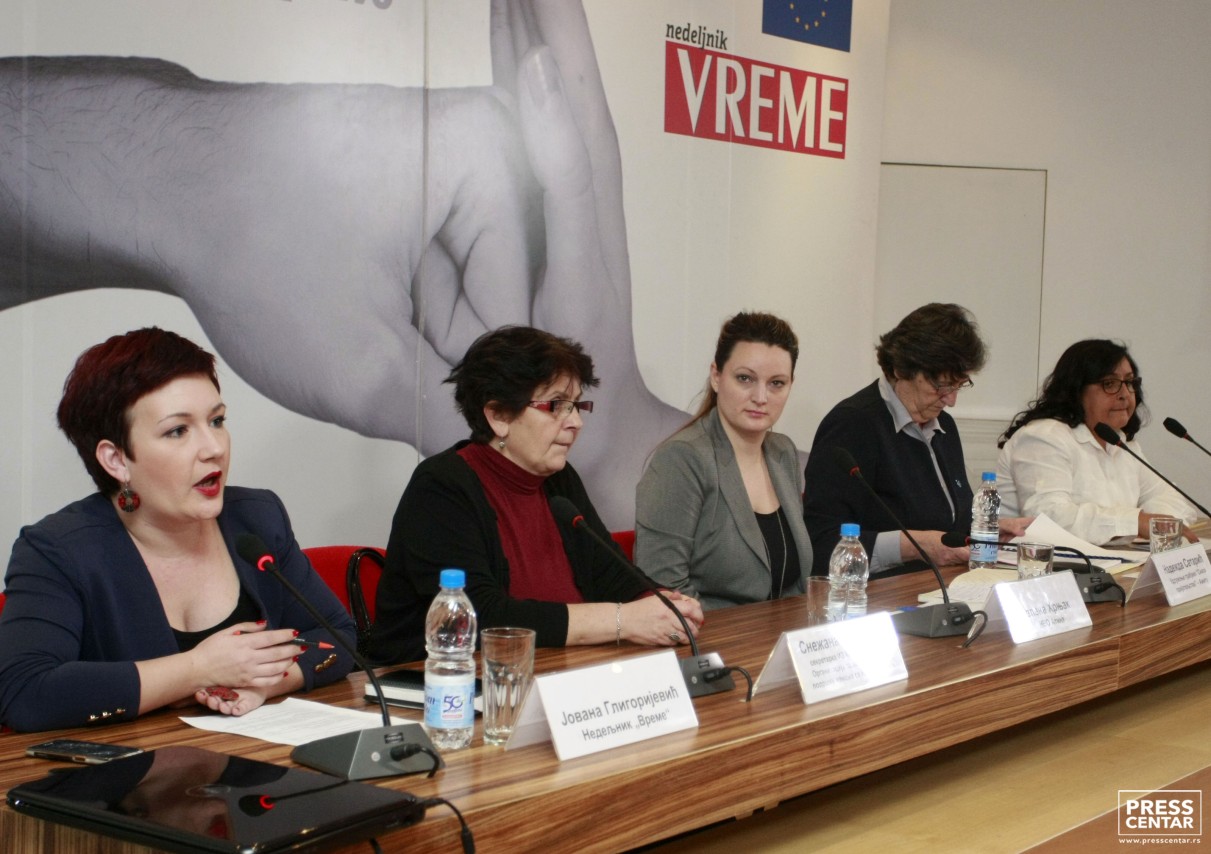Hotline: +381 61 63 84 071
Women who suffer violence – the same problem in different cultures

Migrant women, Roma women, women with disabilities and the elderly are the most vulnerable social groups, and often suffer domestic violence as well. Although there are cultural and traditional inequalities between women who ran from war-torn African countries and women in Serbia, when it comes to violence - there is almost no difference at all. Because of fear, or because they have been taught from an early age that they are property of their families and husbands, they rarely dare to report the perpetrator.
In the background of war horrors that made millions of migrants begin their journey toward a better and safer place, there are fates of many women who may never get to live a better life. The regimes in countries such as Afghanistan and Iraq, even before the outbreak of war, have not been favorable toward them.
“If she has a husband, he will not allow you to talk directly to the woman. When you do manage to talk, you see how high their pain tolerance actually is. It is traditionally ingrained in her that it is normal to be married at the age of 11, that it is normal for her husband to beat her, that it is normal for the phenomenon of honor killings to exist, which we have registered on several occasions,” explains Jelena Hrnjak from NGO Atina.
In Roma population in Serbia there are also examples of girls being forced to marry at the age of 12, or 13, being denied schooling, being financially and in any other respect dependent - first from their fathers, and then their husbands. According to statistics, every third Roma woman has experienced violence.
“Roma women do not trust institutions because they have the experience of discrimination. Roma woman has no rights in terms of decision making, education, when she is to marry, whether she will have children or not, she cannot even decide when, or if, she will go to the doctor,” said Nada Djurickovic from Roma Center for Women and Children “Daje”.
The neglect of women with disabilities is not a rare occurrence. They often suffer physical violence as well. Due to architectural barriers, safe houses are mostly inaccessible to them, there is no system support, and they cannot take care of themselves.
"We, as an organization from Belgrade, can provide a woman with psychosocial support, legal assistance, but unfortunately we are not able to provide the service of assistants who would help her with the accommodation in a safe house. That accommodation in a safe house that lasts a couple of months does not mean anything to them,” says Snezana Madjercic from the Organization for the protection of, and support to, women with disabilities “Out of circle”.
Elderly mostly suffer violence from their loved ones, and rather keep quiet about it.
“I suppose these are difficult times, and in that egocentrism everyone is focused on, and minding, their own business, and does not care much what is happening to others. These are some of my attempts to answer why violence against the elderly is a taboo topic,” says Nadezda Sataric from NGO “Power of friendship - Amity”.
During the year, 55 migrant women sought help due to violence, according to NGO “Atina” data. In Serbia, since the beginning of the year, 27 women and three children were killed in domestic violence.
For NGO Atina, text translated by Marija Pantelic
The original text can be found here:












 FACEBOOK
FACEBOOK TWITTER
TWITTER YOUTUBE
YOUTUBE